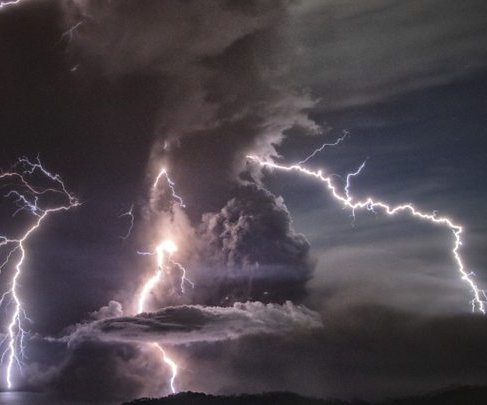MOSCOW (AP) — The Latest on the poisoning of a former Russian spy in Britain (all times local):
10 p.m.
Russian President Vladimir Putin says Moscow wants a thorough probe into the poisoning of an ex-Russian spy in Britain and will demand to be part of it.
Putin, speaking Tuesday in Ankara following talks with Turkish President Recep Tayyip Erdogan, cited the head of Britain's defense laboratory who said that its scientists have not identified the precise source of the nerve agent used to attack former double agent Sergei Skripal and his daughter.
Putin said, given the lack of precise information about the agent's origin, "the speed at which the anti-Russian campaign has been launched causes bewilderment."
Britain has blamed Russia for the poisoning, the accusations Russia vehemently denied. Both the West and Russia have expelled over 150 envoys each in the dispute.
Putin said the type of the nerve agent used in the March 4 poisoning could be made in some 20 nations.
___
9:40 p.m.
Russia's envoy to the European Union says British accusations of Russian involvement in the poisoning of an ex-Russian spy could have been an attempt to distract public attention from Britain's troubled exit from the EU.
Vladimir Chizhov said Tuesday "this distractive maneuver could have been aimed at the British society, which has remained split after the 2016 Brexit referendum."
Britain has accused Russia of involvement in the March 4 nerve agent attack on former double agent Sergei Skripal and his daughter, the accusations Russia has vehemently denied.
Moscow alleged that British intelligence agencies could have been behind the poisoning.
Chizhov says "Russia clearly had no motive" to attack Skripal, who was convicted of spying for Britain but freed in a 2010 spy swap. He added Moscow had "no outstanding issues" against the 66-year-old Skripal.
___
6:50 p.m.
France is refusing to answer a detailed list of questions from Russia over the spy poisoning scandal in Britain that has turned into a multi-country diplomatic dispute.
France expelled four Russian diplomats last week over the nerve agent attack on Sergei Skripal. Russia sent France 10 questions about why France thinks Russia was involved, and about France's own chemical weapons programs.
A French diplomatic official said Tuesday that Britain had informed France about the details of its investigation. The official did not divulge those details, but said Russian involvement in the attack is the only "plausible explanation."
The official told The Associated Press that France would not respond to Russia until Moscow answers questions posed by Britain's government on March 12. Britain at the time asked the Russian ambassador to say whether the attack was carried out by the Russian state, or whether Russia lost control of the nerve agent used.
Britain says the Soviet-made nerve agent Novichok was used in the attack last month. Russia vehemently denies any responsibility.
—By Sylvie Corbet in Paris
___
6:30 p.m.
The chief executive of Britain's Porton Down defense laboratory says its scientists have identified the nerve agent used to poison Sergei and Yulia Skripal, but have not verified its "precise source."
Gary Aitkenhead says "it's our job to provide the scientific evidence that identifies what the particular nerve agent is ... but it's not our job to say where that was actually manufactured."
Britain says the Skripals were poisoned with a Soviet-developed nerve agent, and that the Russian state must be behind the attack.
Russia denies responsibility and has suggested the poison may have come from Britain.
Aitkenhead said Tuesday that the attack with a highly toxic Novichok nerve agent was "probably only within the capabilities of a state actor."
He says there is "no way" the nerve agent could have come from the high-security Porton Down facility.
___
5:50 p.m.
The global chemical weapons control body will hold an emergency meeting to discuss the poisoning of former spy Sergei Skripal, at Russia's request.
Yury Filatov, Russia's ambassador to Ireland, says Moscow asked the Organization for the Prohibition of Chemical Weapons "to call an extraordinary session" at its headquarters in The Hague." The organization says the meeting will be held at 0800GMT Wednesday.
Filatov says Russia wants Britain to "provide every possible element of evidence" it holds about the March 4 attack on Sergei Skripal and his daughter Yulia in the English city of Salisbury.
Britain blames Russia for the pair's poisoning with a Soviet-developed nerve agent. Russia denies involvement.
Filatov said Tuesday that if the U.K. does not show evidence, "there are ample grounds to assume that we are dealing with a grand scale provocation organized in London aimed to discredit Russia."
___
1:30 p.m.
A top Russian diplomat says the nerve agent poisoning of a former Russian spy may have been arranged by Britain to justify military spending.
The March 4 poisoning of Sergei Skripal and his daughter in the English city of Salisbury sent shockwaves across Europe. British authorities suspect Skripal was poisoned by a Soviet-made nerve agent. Moscow vehemently denies its responsibility. European Union nations, the United States and other Western countries joined Britain in expelling more than 150 Russian diplomats from their countries.
Deputy Foreign Minister Alexander Grushko in comments relayed by Russian news agencies on Tuesday called Skripal's poisoning a "provocation arranged by Britain" in order to justify high military spending because "they need a major enemy."









